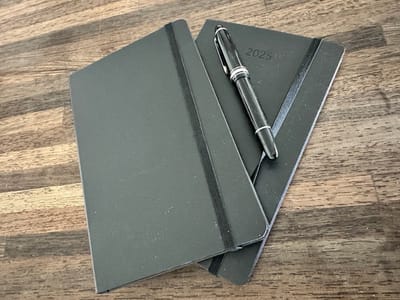Ditching your smartphone - is it for you?

I've written before about digital detox, and the benefits that reducing electronic clutter and dependence on devices has had on my productivity, and mental health.
This weekend, I was interested to read a story that started in the tabloids about Simon Cowell, who has reportedly given up his mobile phone for the last ten months. On the surface, this seems like a great story, but it got me thinking. Here is a successful businessman, taking control of his dependence on devices and looking after his mental health. Cowell says he spent a lot of his time 'irritated' at his phone and then annoyed at others using their phones while in meetings.
Simon Cowell is not alone, plenty of notable names have talked about detoxing from devices, but the truth is that these people can afford to do that. Ditching your devices is the ultimate luxury - giving back time and privacy in one fell swoop. I'm sure that I could ditch my phone if I had people around me that would use theirs instead.
The reality is that most of us run our lives ourselves, using our phones as an essential tool to stay in touch with work or friends, access goods and services and sometimes get entertainment.
However, there has to be a balance.
Its fair to say that there are definite issues with over-dependency on smartphones and tablets, data tells us that many people look at their phones within 15 minutes of waking up and work-life balance can be severely impacted by intrusions into leisure and rest time.
Solving these problems requires an investment of time and effort, but there are simple steps that you can take that will help:
- Reduce the number of notifications and alerts that disturb you or break concentration. Switching off pop-ups, removing red 'badges' and uninstalling apps that generate alerts are good steps.
- Schedule periods of time without your smartphone nearby. These unbroken times of concentration can drive high productivity.
- Remove smart devices from the bedroom, to encourage better rest and sleep.
- Carefully 'curate' the things allowed into your inbox so that when you do handle email, you are not processing pages and pages of 'junk' email.
All of these steps have helped me become way less dependant on my smartphone, and more aware of the people around me.
So, whilst ditching the smartphone may not be an option for most of us - we may be able to reap some of the benefits without creating a dependency on other people to do work for us.







Member discussion